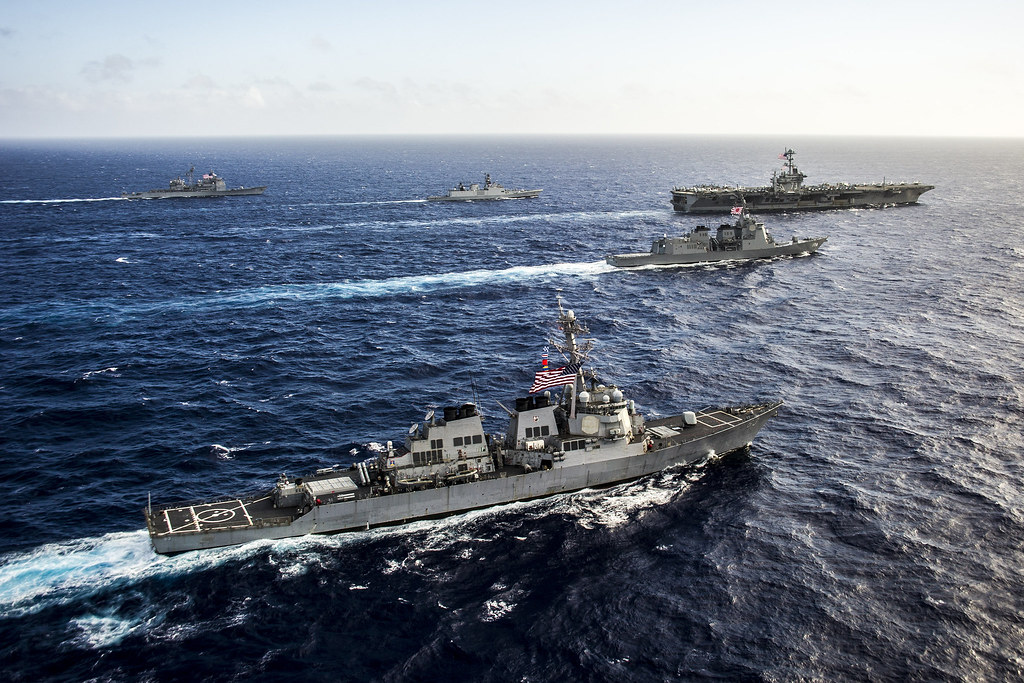Image Added by Pacific Sentinel: WATERS EAST OF OKINAWA (July 30, 2014) Ships from U.S. and Indian navies, and Japan Maritime Self-Defense Force transit in formation during Malabar 2014, a trilateral naval field training exercise aimed at improving maritime relationships and increasing understanding in multinational operations. (U.S. Navy photo by Mass Communication Specialist 3rd Class Chris Cavagnaro/Released) [Image: Flickr User - U.S. Pacific Fleet] >>
Large-scale naval war games will take place in the East China Sea along China’s western border in the latest provocative act by the US government to contain China.
On Tuesday, Japan’s Ministry of Defense announced that its country’s forces will join Exercise Malabar, an annual large-scale naval drill hosted by the United States and India. The military exercise is to take place in an area of the East China Sea claimed by Beijing creating a risk that the wargames will further increase regional tensions.
Japan will join the exercise for the first time since 2007 (PacificSentinel Note: this is wrong, as you can see from the Image above, Japan participated in Malabar 2014), with international analysts citing Tokyo’s concerns about China’s recent claims to the Japanese controlled Senkaku Islands 137 miles (220km) west of Taiwan.
The dispute is separate from the hotly-contested South China Sea territories – the Paracel and Spratly Islands – an area that sees overlapping claims from China, the Philippines, Vietnam, Malaysia, Taiwan and Brunei.
Tokyo has installed radar stations and anti-ship missile batteries in and around the Senkaku Island chain, which is also home to the largest concentration of US military personnel in Asia.
The location of this year’s exercise appears to be a provocation to China, given its relative distance from the Indian mainland. Last year, the drills were conducted in the Bay of Bengal, more traditionally viewed as within India’s sphere of influence.
The drill comes at a time when the Obama administration seeks to contain China’s growing regional influence. Last week, President Obama offered substantial concessions to Vietnam, including ending a 50-year arms embargo. The outgoing President also visited Japan, visiting Hiroshima the site of a World War II atomic bombing, in a bid to develop a robust international coalition to counter China.
Further, the Obama administration has welcomed Indian Prime Minister Narendra Modi to speak before a joint-session of the US Congress on Wednesday, in a bid to solidify budding military relations between the two long-time trade partners. Notably, Prime Minister Modi was banned from entry into the United States a decade ago, with officials citing at the time allegations of the leader’s involvement in a massacre of minority Muslims in Gujarat.
Yet with the superpower status of the United States appearing to wane and China’s massive international investment and diplomatic efforts, Washington, in the form of its military-industrial and intelligence spokespeople, gives the impression of doing everything it can to delay Beijing’s rise.
This story first appeared on Sputnik & is reposted here with permission.

